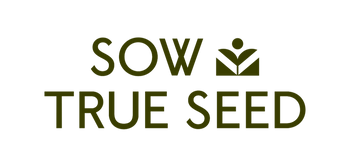For me, part of what makes gardening fun is the element of change that seems to go hand in hand with every season. This keeps me interested and challenged- two things that I require in my hobbies. Every New Year’s Eve, millions of resolutions are made by millions of optimistic people, and I am certainly one of them. Along with personal resolutions, (exercise more, do the dishes BEFORE I can no longer see the sink), I also make gardening resolutions. Here are a few that have served me well in the past, and the two that I’ve made this year.
I resolve to take time to enjoy my yard and gardens, and not just feel like a slave to them.
This might seem like a no-brainer, but I’m sure I’m not the only one that has worked hard on keeping my flowers beautiful and my vegetables productive only to realize it’s suddenly October and the season has passed without a single swing in the hammock. I may grow vegetables for my family and neighbors, but all my flowers, the trees, those are all for me. It’s just plain foolish for me to not make the time to meander, or just sit and enjoy. This was my resolution about 5 years ago. Now I make the time to spend at least 5 minutes a day just looking at how beautiful the sun hits that blossom, or smile at how the wind dances with the leaves.
Burdock
I resolve to not buy plants until I have space available to put them in the ground.
I love plants and the promise they hold. I am also a very busy woman, and am not often able to make the time to carry out the grand plans that hang out in my head for my garden. Easily swayed by an interesting new plant, I tend to buy first and plan later, but I detest wasting money, and it breaks my heart seeing a plant die only because it’s grown too big for the little pot it’s in. I must admit that this resolution gets repeated every year, though I have gotten much better. Step 1., create beds. Step 2., buy plants.
I resolve to remember to pull my weeds after they flower.
Yes, you read that right. In my yard, weed is a subjective description. Unless the plant in question is stealing water or nutrients from something that I planted that I want to have those resources, 9 times out of 10 I will let the plant hang out and grow until it flowers. So many weeds have an interesting flower, and are beneficial to pollinators, they seem worthy to me of some space to grow. Unfortunately for me, I often allow their quiet charm to complete their seed cycle, and then I regret my generosity. They are only welcome in small doses. When I forget to pull the plant or pick off the flower when it starts to fade, I create a ton more work for myself, and that’s silly.
I resolve to test my soil every year.
This couldn’t be easier. Every county in the United States has an Extension Agency, and every extension agency provides boxes for you to fill with the soil you want tested, and instructions on how to do it. If you get a jump on things, it’s even often free if you send in your samples in the fall, after then it’s still only $4 or $5. Knowing what you’re working with, and how to amend your soil with the correct ingredients for what you want to plant in invaluable as a gardener.
I resolve that every non-food plant I plant will have a benefit to something other than me.
What I mean by this is to focus on pollinator plants, with an emphasis on natives, so that when I am looking at the beautiful foliage or blossoms, I likely will also be looking at native bees, honeybees, butterflies, and caterpillars. This is also a very easy one, as it’s very easy to find crossover plants that are both useful and pretty.

Purple Coneflower Echinacea and Rudbeckia
I resolve to compost as much as possible.
I’m already composting a LOT. All of my food scraps and garden waste gets composted, as well as close to a literal ton of chicken manure from my hen house. But I can do more. Paper towels, tissues, cotton balls, q-tips… there are many things I use every day that are biodegradable, therefore perfect for my compost bins. Why send them to the landfill when they can breakdown into amazing soil that makes my plants happy?
I resolve to continue to learn new things and to teach what I know.
There are opportunities for learning all over the place. Check the community section of your local paper, call your local Extension Agency for a list of upcoming classes, check with local gardening groups to see if they have any speakers scheduled. This year I’ve joined the NC Extension Master Gardener program, which is one class a week for four months and a lot of great information. I hope to be able to turn this knowledge into healthier gardens for myself, and the ability to better help Sow True Seed customers with their questions.
I hope this list inspires you to mix up your gardening game a little this year. There is always room for improvement, and always opportunities to try new things. Isn’t that what resolutions are all about?


